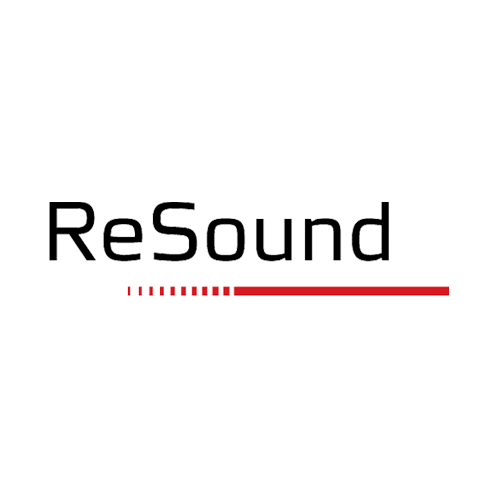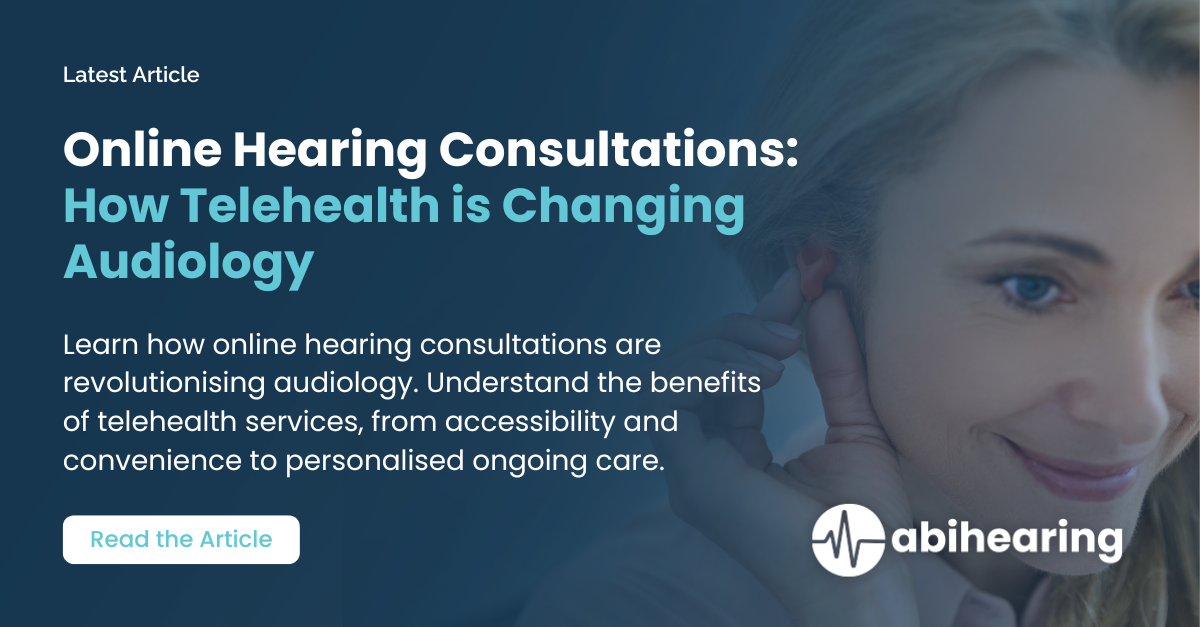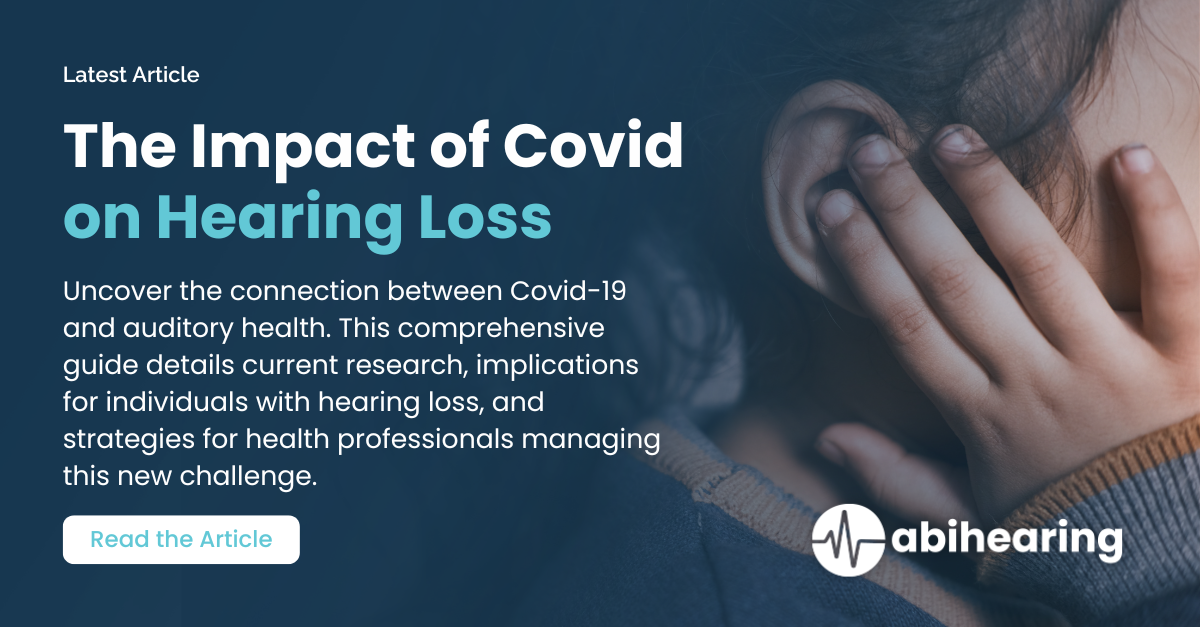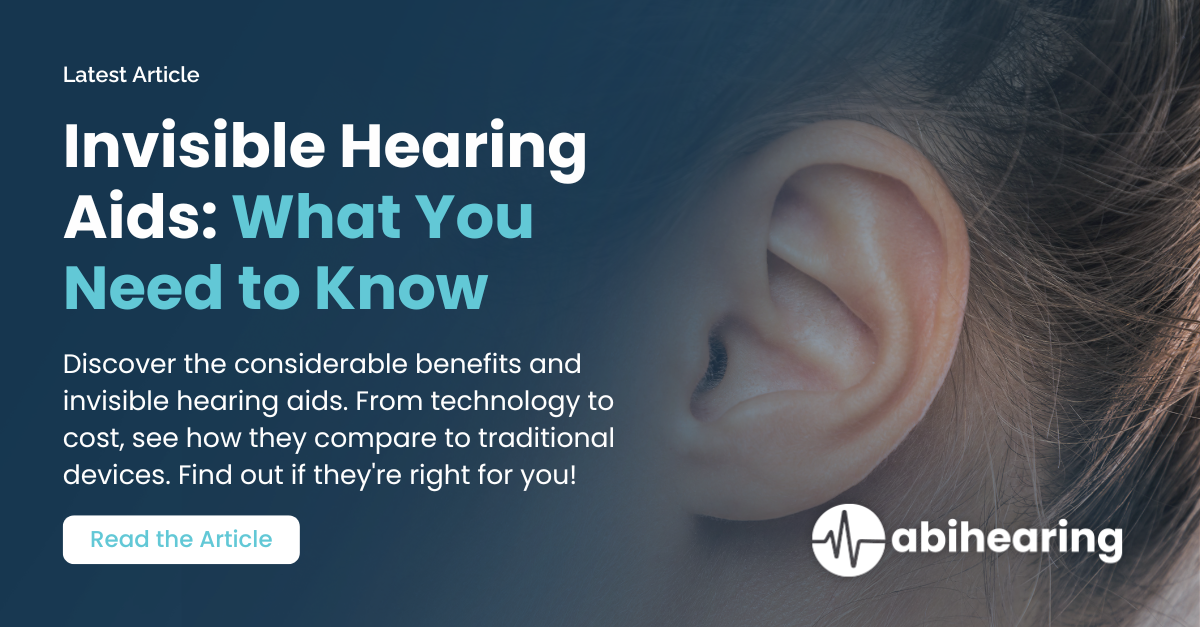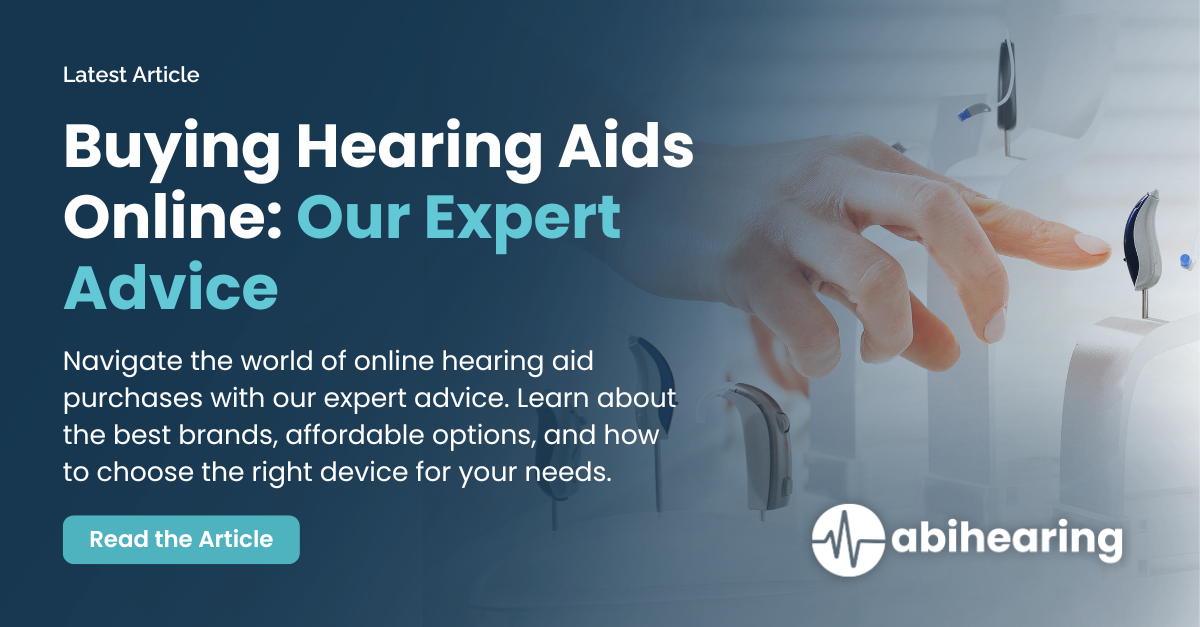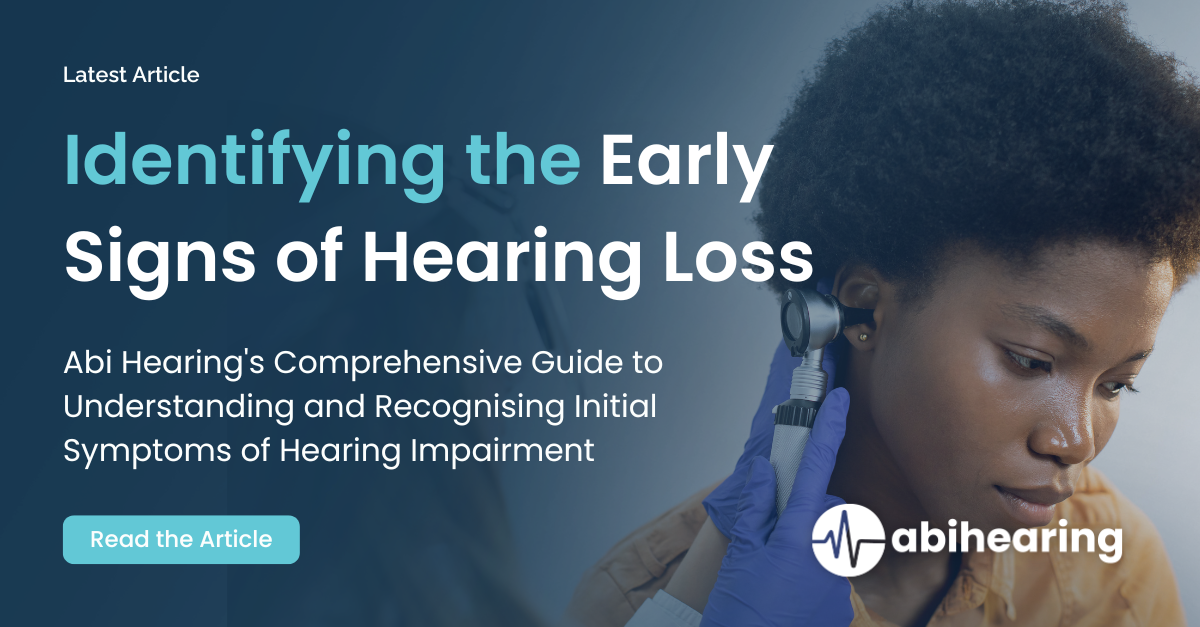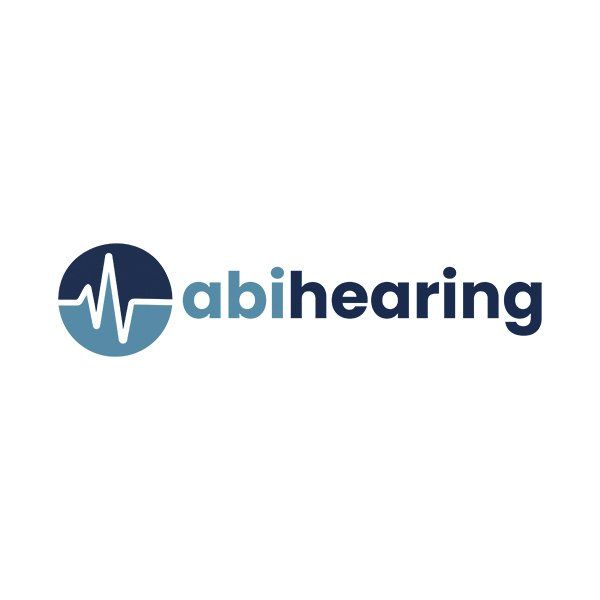Hearing Aids to help improve your hearing loss and fit seamlessly into your lifestyle.
Abi Hearing are hearing aid retailers who dedicate ourselves to helping clients find the right hearing aid to minimise the impact that hearing loss has on their lives.
Whether you are wanting to replace a broken or outdated hearing aid, or looking for help choosing a hearing aid for the first time, our team of hearing aid experts can help you find the right hearing aid to suit your budget, lifestyle and feature requirements.
What is A Hearing Aid & How Does It Help?
A hearing aid is a battery-powered electronic device designed to improve your hearing. Small enough to wear in or behind your ear, they make some sounds louder. They may help you hear better when it's quiet and when it's noisy.
Here’s how they work:
- A microphone picks up sound around you
- An amplifier makes the sound louder
- A receiver sends these amplified sounds into your ear
Not everyone with hearing loss can benefit from hearing aids. But only 1 in 5 people who could have improvement wear them. Most of the time, they’re for people who have damage to their inner ear or the nerve that links the ear with the brain. The damage can come from:
- Disease
- Aging
- Loud noises
- Medications
Hearing loss that’s due to problems with the ear canal, eardrum, or middle ear is called conductive hearing loss. Most of the time, surgery or other medical help can make it better. But those options aren’t right for everyone. If you have an open ear canal and a relatively normal external ear, a hearing aid may help.
Some people are born without an external ear or ear canal, which means they can’t use a typical hearing aid. Instead, they may be able to use a device that sends sound to the inner ear through the bone of their skull.
Choosing The Right Hearing Aid
How to choose the right hearing aid for me?
Perhaps you've thought about getting a hearing aid, but you're worried about how it will look or whether it will really help. It may help ease your concerns to know more about:
- The hearing aid options available to you
- What to look for when buying a hearing aid
- How to get used to a hearing aid
Hearing aids can't restore normal hearing. They can improve your hearing by amplifying sounds that you've had trouble hearing.
All hearing aids use the same basic parts to carry sounds from the environment into your ear and make them louder. Most hearing aids are digital, and all are powered with a traditional hearing aid battery or a rechargeable battery.
Small microphones collect sounds from the environment. A computer chip with an amplifier converts the incoming sound into digital code. It analyzes and adjusts the sound based on your hearing loss, listening needs and the level of the sounds around you. The amplified signals are then converted back into sound waves and delivered to your ears through speakers, sometimes called receivers.
Before buying, consider the following:
- Get a checkup. See your doctor to rule out correctable causes of hearing loss, such as earwax or an infection. And have your hearing tested by a hearing specialist (audiologist).
- Seek a referral to a reputable audiologist. If you don't know a good audiologist, ask your doctor for a referral. An audiologist will assess your hearing, help you choose the most appropriate hearing aid and adjust the device to meet your needs. If you have hearing loss in both ears, you will get best results with two hearing aids.
- Ask about a trial period. You can usually get a hearing aid with a trial period. It may take you a while to get used to the device and decide if it's right for you. Have the dispenser put in writing the cost of a trial, whether this amount is credited toward the final cost of the hearing aid and how much is refundable if you return the hearing aid during the trial period.
- Think about future needs. Ask whether the hearing aid you've chosen is capable of increased power so that it will still be useful if your hearing loss gets worse. Hearing aids do not function indefinitely, but they should last about five years.
- Check for a warranty. Make sure the hearing aid includes a warranty that covers parts and labor for a specified period. Some dispensers may include office visits or professional services in the warranty.
- Beware of misleading claims. Hearing aids can't restore normal hearing or eliminate all background noise. Beware of advertisements or dispensers who claim otherwise.
- Plan for the expense. The cost of hearing aids varies widely — from about $1,500 to more than a few thousand dollars each. Professional fees, remote controls, hearing aid accessories and other hearing aid options may cost extra. Talk to your audiologist about your needs and expectations.
Hearing Tools to Help Our Community
Free Online Hearing Test
If you are interested in learning more about the current state of your hearing health, and an online hearing test is a great place to start. Our online hearing test takes around 5 minutes, and upon completion, you will receive a digital report outlining your results and providing recommendations on the next steps you should take.
Schedule An Appointment With Our Hearing Health Experts Today!
There are a few different types of Bulk Billed Hearing Tests. The most common type is an audio diagnostic test, which is used to screen for hearing loss. This type of test usually takes around 30 minutes to complete.
If you are interested in getting a Bulk Billed Hearing Test, talk to the team at Abi Hearing. They will be able to tell you if you are eligible for a test and book your appointment at our Bundoora Audiologist Clinic.
The entire team at Abi Hearing looks forward to meeting you. We are ready to answer your questions, fully understand your hearing challenges, and introduce you to exciting new technologies that can give you the excellent hearing you've been wanting.
Book an Appointment
We will get back to you as soon as possible.
Please try again later.
Read the Latest Articles for Abi Hearing Clinic's Audiology
& Hearing Loss Experts
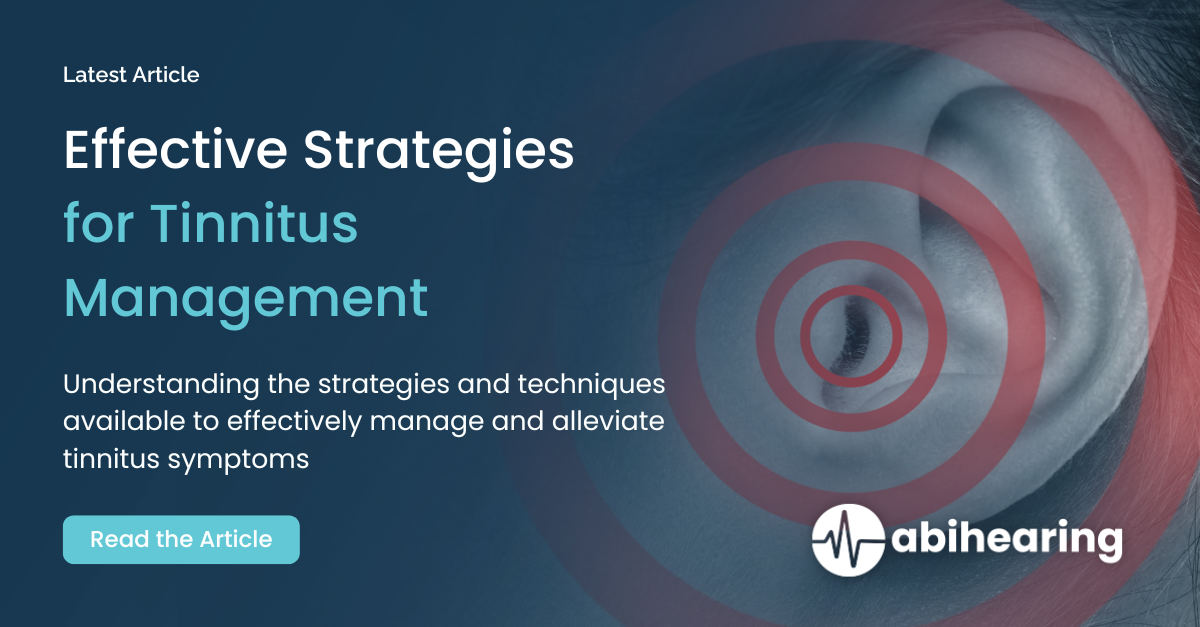
Common Questions About Hearing Aids
-
What does a hearing aid do?
A hearing aid is a device worn behind the ear, in the outer ear canal, or in the middle ear to amplify sounds. It can be used to improve mild to moderately-severe losses due to sensorineural hearing impairment and conductive hearing impairment. Some hearing aids also have a built-in T-coil (telecoil) which can be used to improve the listening experience for people with single-sided deafness, or when there is a lot of noise present.
Hearing aids make it possible for people with mild to severe hearing loss to hear sounds more clearly. There are different types of hearing aids that can be used in either one or both ears.
A digital hearing aid is an electronic device that amplifies sound. Digital hearing aids convert sound waves into electrical signals that are then amplified. This type of hearing aid is a more modern technology offering greater benefits to users.
-
How do I know if I need a hearing aid?
If you have trouble hearing, or if people complain that you're turning the TV volume up too high, you may need a hearing aid. A hearing test can confirm whether you have a problem.
-
How do I know which type of hearing aid is right for me?
Your audiologist will help you choose the type of hearing aid that's best suited for your needs and lifestyle. Factors that will be considered include the severity of your hearing loss, your listening environment, and your budget.
-
What are the different types of hearing aids?
The four main types of hearing aids are:
1. Behind-the-ear (BTE)
This is the most common type of hearing aid. It sits behind the ear and has a clear plastic tube that goes down into the ear canal. BTEs are available in a variety of styles and colors, and are the most durable type of hearing aid.
2. In-the-ear (ITE)
This type of hearing aid is custom made to fit snugly in the outer part of your ear. ITEs are less visible than BTEs, but they may not be as durable.
3. In-the-canal (ITC) and completely-in-the canal (CIC)
These are the smallest and most discreet type of hearing aid. ITCs and CICs sit in the ear canal and are not visible once they are in place. They can be more difficult to adjust than other types of hearing aids.
4. Invisible Hearing Aid (IHA)
An invisible hearing aid is designed to be worn for extended periods of time to minimise the hassle of managing your hearing health. The devices are inserted deep into the canal, by a qualified Audiologist and remain there for their lifecycle.
-
What are the different parts of a hearing aid?
The different parts of a hearing aid include:
1. The microphone
This is the part of the hearing aid that picks up sound from the environment.
2. The amplifier
This part of the hearing aid increases the volume of sound that is picked up by the microphone.
3. The receiver
This is the part of the hearing aid that sends sound to your ear.
4. The battery
This powers the hearing aid. Hearing aids use either disposable or rechargeable batteries.
5. The processor
This controls how the hearing aid sounds and adjusts to different environments.
6. The casing
This is the outer shell of the hearing Aid.
-
What are the different features of a hearing aid?
There are many different features that you can choose from when you buy a hearing aid. Some common features include:
1. Volume control
This lets you adjust how loud or soft the sound is coming through the hearing aid.
2. Tone control
This allows you to adjust the tone of the sound, making it sound more natural.
3. Noise reduction
This feature reduces background noise, making it easier to hear conversation.
4. Directional microphones
This feature allows you to adjust the hearing aid so that it picks up sound from the front, making it easier to hear in noisy environments.
5. Telecoil
This is a special setting that helps you hear better on the telephone and in places where there is a loop system set up (such as a movie theatre or museum).
-
What are the different types of hearing loss?
There are two main types of hearing loss: conductive and sensorineural.
1. Conductive hearing loss
This type of hearing loss occurs when there is a problem with the structure of the ear or the way that sound waves are conducted through the ear. Conductive hearing loss can be caused by things like wax build-up, infection, or damage to the ear.
2. Sensorineural hearing loss
This type of hearing loss occurs when there is a problem with the inner ear or the way that the brain interprets sound. Sensorineural hearing loss can be caused by things like age-related hearing loss, noise exposure, or injury.
-
What are the benefits of using a hearing aid?
There are many benefits to using a hearing aid. Some of the most important benefits include:
1. Improved communication
Hearing aids help you hear better in both quiet and noisy environments, making it easier to communicate with others.
2. Improved quality of life
Hearing aids can help you stay connected to your loved ones and participate in activities that you enjoy.
3. Improved safety
Hearing aids help you hear warning signals and other important sounds, making it easier to stay safe in your environment.
4. Improved mental health
Research has shown that using a hearing aid can improve your mood and overall well-being.
5. Improved self-confidence
Using a hearing aid can help you feel more confident and social, which can lead to a better quality of life.
6. Reduces the risk of developing dementia
Research has shown that using a hearing aid can reduce the risk of developing dementia by up to 50%.
7. Reduces the risk of falling
Hearing aids help you hear better in your environment, which can help you stay safe when walking or climbing stairs.
8. Reduces the risk of social isolation
Hearing loss can often lead to social isolation, but using a hearing aid can help you connect with others and stay involved in your community.
9. Affordable
Many health insurance plans cover the cost of hearing aids, making them more affordable for those who need them.
10. Customizable
Hearing aids come in many different styles and colours, so you can find one that fits your personality and lifestyle.
-
Which hearing aids can I choose from at Abi Hearing?
-
How do I know if I need a hearing aid?
We all know that hearing loss can cause many problems. It can be a serious issue for those who work in noisy environments, in the office or on the construction site, or an inconvenience for someone wanting to tune into their favourite TV show. If you have any of the following symptoms, it is time to schedule an appointment with your audiologist:
Any noticeable change in your hearing
You have a hearing loss that is severe enough to interfere with your life
You have tinnitus
You have sudden and unexplained hearing loss
You are not able to hear a conversation from across the room or in a quiet room
You are missing conversations on your Phone or in the car
You experience dizziness, vertigo, or ringing in the ears
If you are experiencing any of these symptoms, it is important to schedule an appointment with your audiologist. The sooner you get treatment, the easier it will be to manage your symptoms and the less they will impact your life.
-
Can hearing aids cause vertigo?
There is no evidence to suggest that properly fitted hearing aids can cause vertigo. However, if you are experiencing vertigo or other dizziness-related symptoms, it is important to speak with your audiologist. There may be another underlying cause for your symptoms that needs to be addressed.
-
How often do hearing aids need to be replaced?
Hearing aids do not need to be replaced on a regular basis. However, over time they may start to lose their effectiveness or become damaged. If you notice that your hearing aids are not working as well as they used to or if they are damaged, it is important to see your audiologist for a replacement.
-
Can hearing aids cause headaches?
There is no evidence to suggest that properly fitted hearing aids can cause headaches. However, if you are experiencing headaches, it is important to speak with your audiologist. There may be another underlying cause for your symptoms that needs to be addressed.
-
Are hearing aids waterproof?
Most hearing aids are not completely waterproof, but most models come with a water-resistant coatings that can protect them from light rain or accidental exposure to water. It is important to remove your hearing aids before swimming or showering.
-
This Page Talks About:
Vestibular systems, unbiased advice, trained, tinnitus management, tinnitus, tests, test, support, specialists, services, seek, ringing, request, range, quality, qualified, purchase hearing aids, professional, patients, melbourne vic, melbourne, life, latest technology, latest equipment, independent audiologists, independent, helpful, hearing tests, hearing test, hearing services, hearing needs, hearing loss, hearing health, hearing concerns, hearing care, hearing australia, hearing assessment, hearing aids, hearing aid manufacturer, hearing aid, hearing, hear, health, friendly environment, free online hearing test, free hearing check, free hearing, foster, ears, ear wax removal, ear wax, ear, doctors, devices, contact, communication, clinic, clients, children, businesses, better hearing, best audiologists, australia, audiology, audiologists, audiologist near me, audiologist, appointment, aids, aid brands, ages, advice, adults.
Subscribe to our newsletter to stay up to date with our latest offers.
Contact Us
We will get back to you as soon as possible.
Please try again later.
Williamstown Hearing Clinic
54 Electra Street,
Williamstown, Victoria
3016
Business Hours:
Monday to Friday
9.00am to 5.00pm
Phone: (03) 9399 9536
Email: info@abihearing.com.au
North Melbourne Hearing Clinic
Suite 228/55 Flemington Rd,
North Melbourne, Victoria
3051
Business Hours:
Thursday to Friday
9.00am to 5.00pm
Phone: (03) 9326 5334
Email: info@abihearing.com.au
Williams Landing Hearing Clinic
111 Overton Road,
Williams Landing, Victoria,
3027
Business Hours:
Thursday to Friday
9.00am to 5.00pm
Email: info@abihearing.com.au
Point Cook Hearing
Clinic
15 Kenswick Street,
Point Cook, VIC,
3030
Business Hours:
Thursday to Friday
9.00am to 5.00pm
Phone: (03) 7018 7477
Email: info@abihearing.com.au


